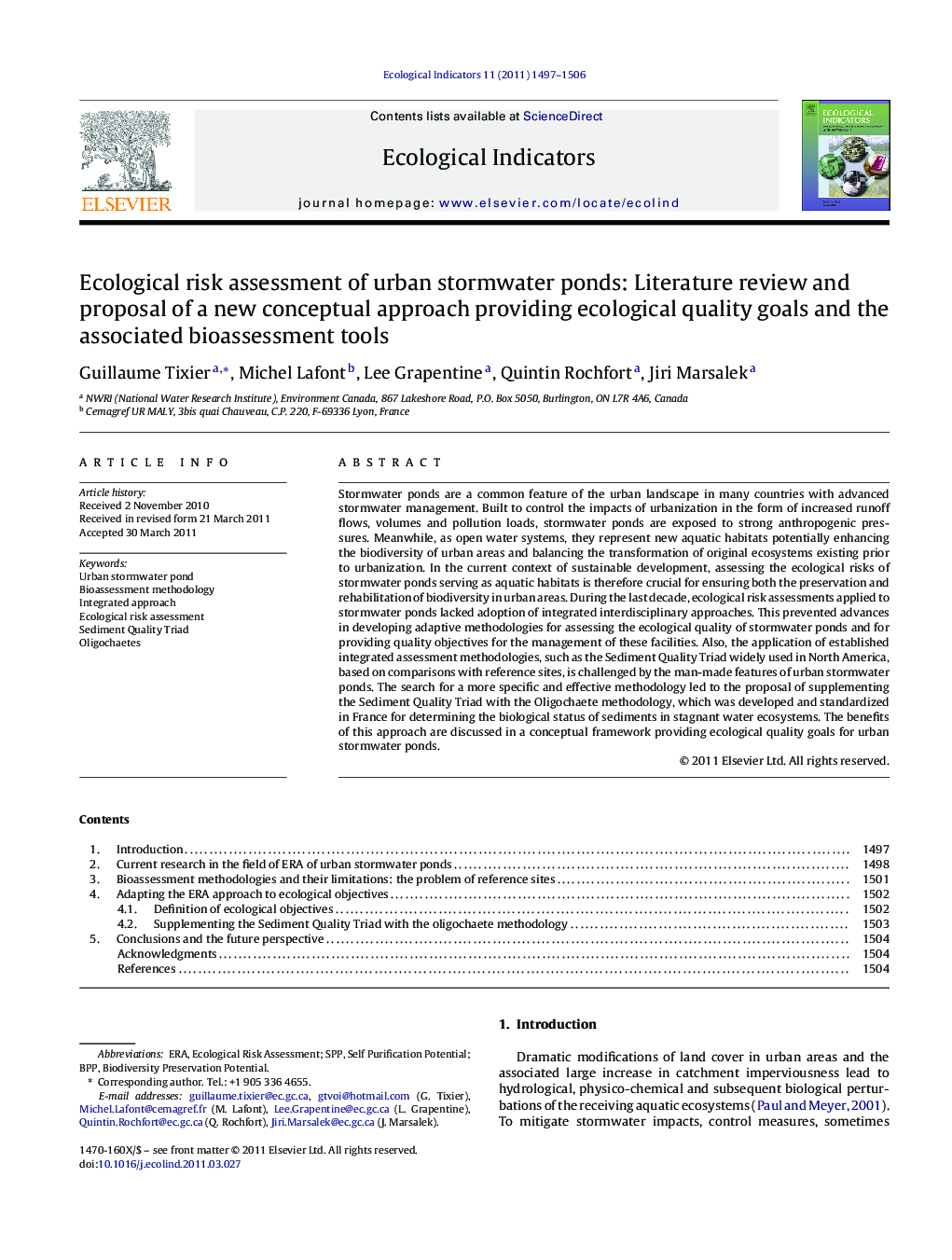| Article ID | Journal | Published Year | Pages | File Type |
|---|---|---|---|---|
| 4373966 | Ecological Indicators | 2011 | 10 Pages |
Stormwater ponds are a common feature of the urban landscape in many countries with advanced stormwater management. Built to control the impacts of urbanization in the form of increased runoff flows, volumes and pollution loads, stormwater ponds are exposed to strong anthropogenic pressures. Meanwhile, as open water systems, they represent new aquatic habitats potentially enhancing the biodiversity of urban areas and balancing the transformation of original ecosystems existing prior to urbanization. In the current context of sustainable development, assessing the ecological risks of stormwater ponds serving as aquatic habitats is therefore crucial for ensuring both the preservation and rehabilitation of biodiversity in urban areas. During the last decade, ecological risk assessments applied to stormwater ponds lacked adoption of integrated interdisciplinary approaches. This prevented advances in developing adaptive methodologies for assessing the ecological quality of stormwater ponds and for providing quality objectives for the management of these facilities. Also, the application of established integrated assessment methodologies, such as the Sediment Quality Triad widely used in North America, based on comparisons with reference sites, is challenged by the man-made features of urban stormwater ponds. The search for a more specific and effective methodology led to the proposal of supplementing the Sediment Quality Triad with the Oligochaete methodology, which was developed and standardized in France for determining the biological status of sediments in stagnant water ecosystems. The benefits of this approach are discussed in a conceptual framework providing ecological quality goals for urban stormwater ponds.
